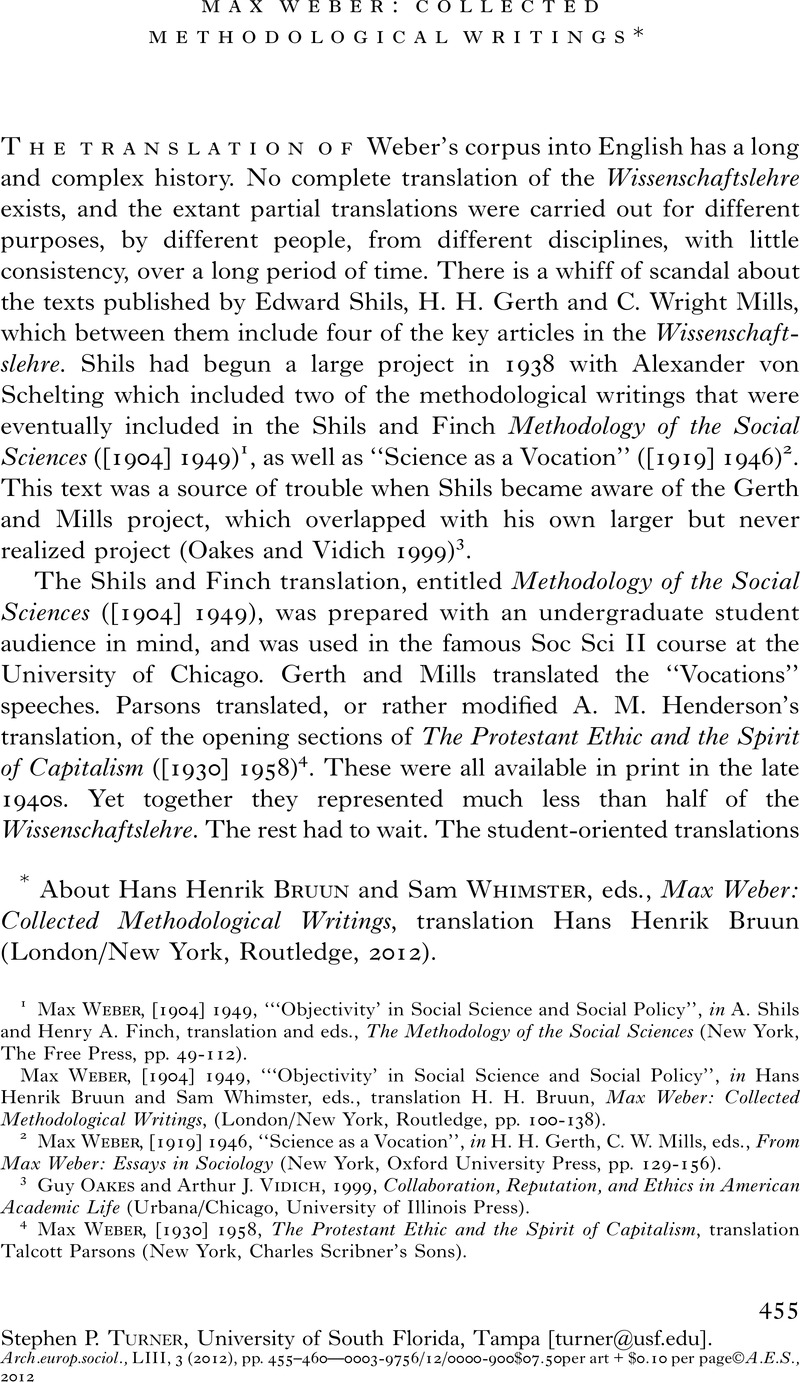Published online by Cambridge University Press: 11 January 2013

1 Max Weber, [1904] 1949, “‘Objectivity’ in Social Science and Social Policy”, in A. Shils and Henry A. Finch, translation and eds., The Methodology of the Social Sciences (New York, The Free Press, pp. 49-112).
Max Weber, [1904] 1949, “‘Objectivity’ in Social Science and Social Policy”, in Hans Henrik Bruun and Sam Whimster, eds., translation H. H. Bruun, Max Weber: Collected Methodological Writings, (London/New York, Routledge, pp. 100-138).
2 Max Weber, [1919] 1946, “Science as a Vocation”, in H. H. Gerth, C. W. Mills, eds., From Max Weber: Essays in Sociology (New York, Oxford University Press, pp. 129-156).
3 Guy Oakes and Arthur J. Vidich, 1999, Collaboration, Reputation, and Ethics in American Academic Life (Urbana/Chicago, University of Illinois Press).
4 Max Weber, [1930] 1958, The Protestant Ethic and the Spirit of Capitalism, translation Talcott Parsons (New York, Charles Scribner’s Sons).
5 Max Weber, 1975, Roscher and Knies, translation G. Oakes (New York, The Free Press).
6 Max Weber, 1977, Critique of Stammler, translation G. Oakes (New York, The Free Press).
7 Max Weber, [1913] 1981, “Some Categories of Interpretive Sociology”, translation E. Graber, The Sociological Quarterly22, Spring 1981, pp.145-150.
8 Peter Ghosh, 2008, A Historian Reads Max Weber: Essays on the Protestant Ethic (Wiesbaden, Harrassowitz).
9 Frederick C. Beiser, 2009, “Normativity in Neo-Kantianism: Its Rise and Fall”, International Journal of Philosophical Studies17 (1), pp. 9-27.
10 Max Weber, [1968] 1978, Economy and Society: An Outline of Interpretive Sociology3 vols, ed. Guenther Roth and Claus Wittich, eds. (Berkeley, University of California Press).